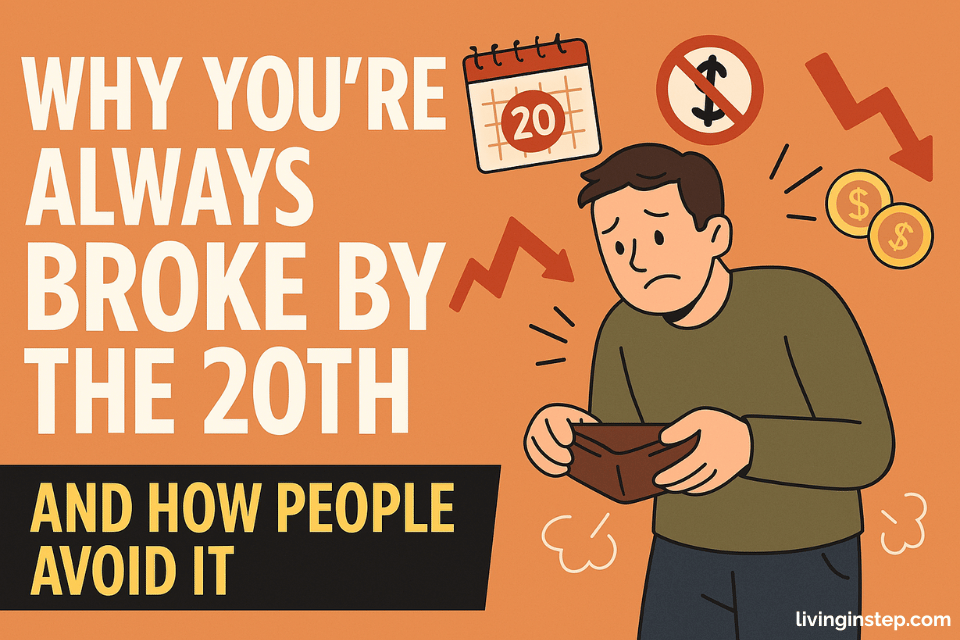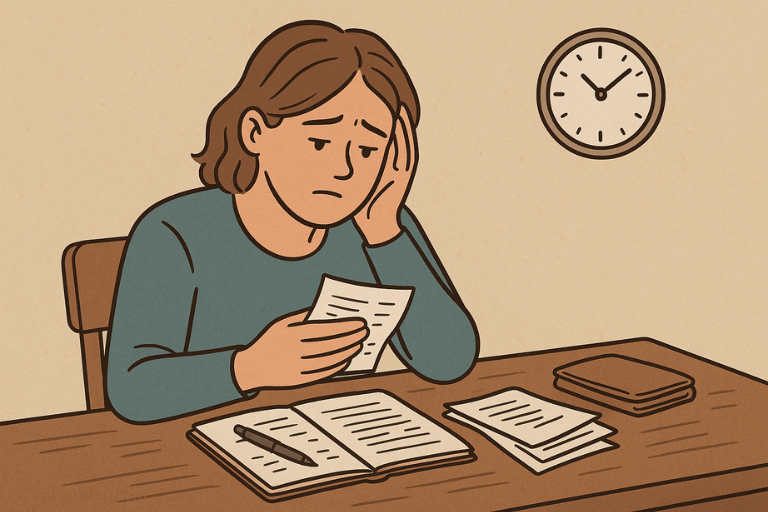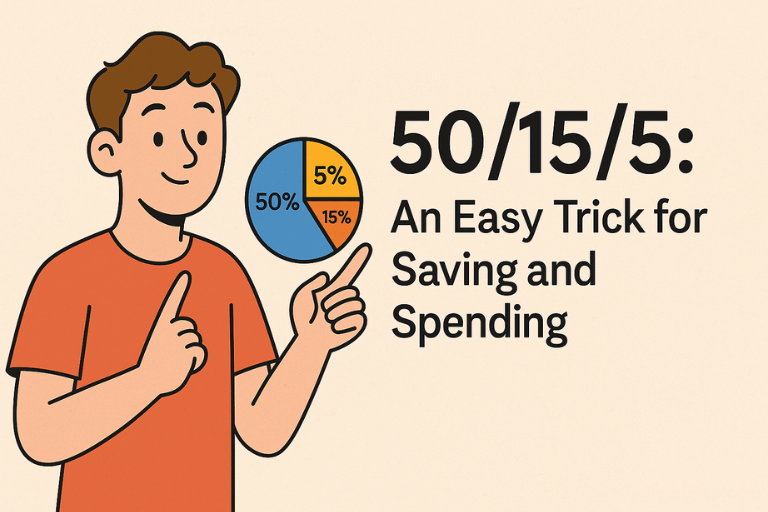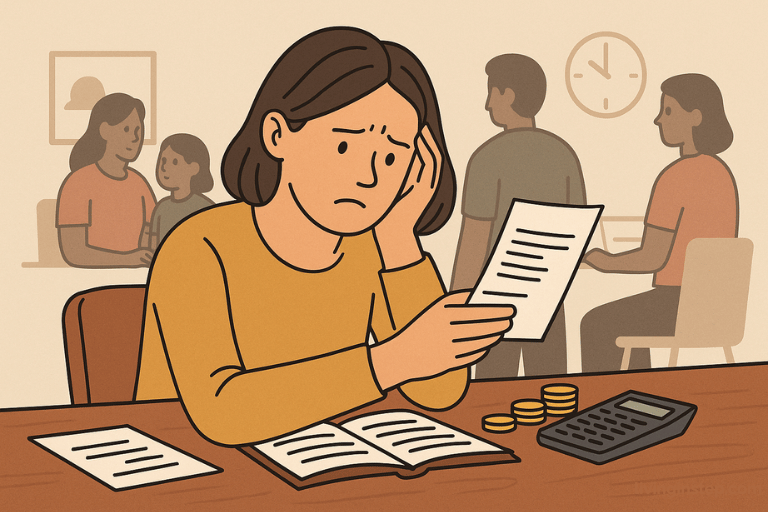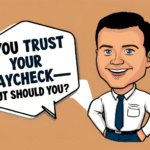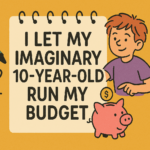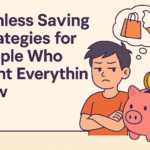You get paid
You cover what you can
And by the time the 20th rolls around, it’s back to “just get me to the end of the month”
Sound familiar?
You’re not alone
It happens to a lot of people—and it doesn’t always mean you’re doing something wrong
But it does usually mean something’s working against you, quietly, every single month
The money comes in—and it disappears just as fast
For many people, their paycheck has already been spent before it even arrives
You’ve got rent or the mortgage
A couple of bills that hit right after
Then groceries, gas, maybe a payment or two
And boom—you’ve only just had a moment to breathe before the balance starts shrinking
By the 20th, you’re staring at the calendar
Doing mental gymnastics to figure out what still needs to be paid
And wondering how you’re going to stretch $47 over the next 10 days
The problem isn’t income—it’s timing
Here’s something to think about:
It’s not always about how much money you make
It’s about when you need it and where it’s going before you’ve had a chance to think
Some people spend like everything’s handled because it feels like it is for the first few days after payday
But those early decisions create the crash that shows up right on schedule every month
Ever looked at your bank account mid-month and thought, “Wait—how did I get here again?”
Most people are living in two parts of the same month
The first half feels okay
You’re buying what you need
You might even treat yourself to something small just to feel normal
Then the second half arrives
And suddenly, everything tightens
You go from “we’ll figure it out” to “we don’t talk about money right now”
That shift isn’t just about spending
It’s about pressure
So how do people avoid it?
They usually do one of three things—sometimes all three
And none of them are earth-shattering
1. They break the month into smaller pieces
Instead of spending from a full paycheck, they mentally split it in two
Half for the first two weeks
Half for the second
That way, there’s something left
Not because they earned more
But because they decided how to stretch it before the stretch arrived
Sounds simple, right?
But it’s the kind of simple that takes practice
2. They automate what disappears first
Rent, bills, payments—they set those to go out automatically
So there’s no pretending the money is available
No illusion of more than what’s really there
When the big stuff is handled early, what’s left is real
And easier to manage without guessing
3. They make a plan for “invisible money”
You know the $9 lunch here, $6 coffee there, $40 “quick grocery run”?
Those aren’t bad decisions
But if they don’t have a name or a limit, they’ll quietly derail everything
The people who stop hitting zero mid-month aren’t depriving themselves
They’re just giving those tiny costs a place to live before they show up
Final thought
If you always feel broke by the 20th, it probably means the first 10 days after payday are doing more damage than you think
Not because you’re reckless
But because you’re reacting in real-time without much room to breathe
And once the month gets away from you, it’s hard to get it back
Some people don’t earn more
They just structure things differently
Not perfectly
Just enough to stop hitting that mid-month wall
That’s the difference between surviving the month
And actually getting to the end of it with something still in your account
Note: This content is for entertainment purposes only and is not financial advice. Please consult a qualified financial advisor for guidance specific to your situation.

